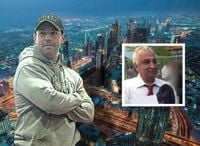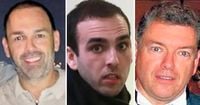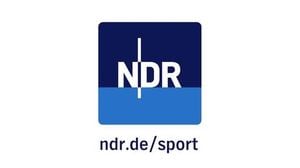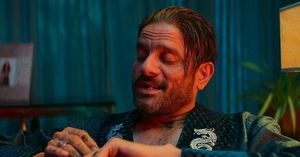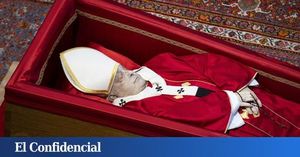In a gripping tale of crime and corruption, the Kinahan crime family has evolved from small-time Irish street dealers to a powerful international drug cartel, now regarded as one of the world’s most feared criminal organizations. This transformation, chronicled in the BBC documentary "Kinahan: The True Story of Ireland’s Mafia," reveals the dark underbelly of a family that has thrived amid violence and betrayal.
Between 2015 and 2018, Ireland was engulfed in a violent gangland war, ignited by a series of bloody shootings in Spain’s infamous Costa del Crime. Daniel Kinahan, often seen as the face of the cartel, has been linked to numerous criminal activities, including drug smuggling, arms dealing, and murder across Europe. His public persona as a boxing promoter contrasts sharply with the violent reality of his operations.
Born into a family of low-level drug dealers, Daniel Kinahan's rise began with his father, Christy Kinahan Sr., who emerged as a significant heroin trafficker in Dublin during the mid-1980s. By the 1990s, Christy had relocated to the Netherlands, where he expanded the family business into a full-fledged cartel, moving millions of pounds worth of drugs. The Kinahan family capitalized on the booming cocaine market in Europe, establishing a base in the Costa del Sol, where they lived lavishly in gated communities, driving luxury cars and enjoying the high life.
However, the Kinahans’ ascent was not without challenges. The rivalry with the Hutch crime family led to a bloody feud that left 18 people dead. This conflict escalated dramatically in 2016 when a suspected cartel member was shot during a boxing weigh-in at Dublin's Regency Hotel, an event that marked a turning point in the gang wars. The intended target was believed to be Daniel Kinahan himself, while David Byrne, a known associate, was killed in the attack.
As the feud intensified, the Kinahans orchestrated a series of retaliatory strikes against their rivals, leading to further violence and arrests. The trial of Patrick Hutch, accused of being involved in the Regency Hotel shooting, collapsed in 2019, and his uncle, Gerry Hutch, was acquitted of murder charges in 2023. Despite these setbacks, law enforcement agencies, including the UK's National Crime Agency and the Irish Garda, have been tracking Kinahan gang members for years, but the family remains elusive.
Currently believed to be living in Dubai, the Kinahans are seen as part of a larger ‘super cartel’ that collaborates with other European crime syndicates. Their operations have reportedly expanded to include partnerships with South American cartels and even connections to the Iranian regime through Hezbollah, a group suspected of generating significant revenue from drug trafficking and arms deals.
In a shocking revelation, former DEA officer Jack Kelly claimed that the Kinahan cartel arranged the murder of an Iranian political dissident, Ali Motamed, in the Netherlands in December 2015. Motamed, who was actually Mohammad Reza Kolahi Sama, had been living under a false identity after fleeing Iran. His assassination was reportedly ordered by the Iranian government, and the Kinahans facilitated the hit through their connections in the Dutch criminal underworld.
Kelly described how the Kinahans were “flashing red” to US officials, indicating their deep ties with Hezbollah and their involvement in international crime. He noted that the Kinahans were not merely drug traffickers but had become instrumental in carrying out strategic objectives for Iran, including the assassination of dissidents.
The Kinahan cartel's influence has reached alarming levels, with their operations characterized as a transnational crime organization. Their ability to evade law enforcement while continuing to expand their empire highlights the challenges faced by authorities worldwide in combating organized crime.
As the Kinahans continue to operate from the shadows, their story serves as a cautionary tale of how power, violence, and money can corrupt and entrench a family in a life of crime. The documentary sheds light on the complexities of their operations and the impact of their actions on communities across Europe.
While the Kinahan family has attempted to distance itself from its criminal past, the evidence of their involvement in organized crime remains overwhelming. Their lavish lifestyle, marked by luxury and excess, starkly contrasts with the violence and fear that have accompanied their rise.
As authorities continue to pursue the Kinahans, the question remains: will justice ever catch up with them? The saga of the Kinahan crime family is far from over, and as long as they are able to evade capture, their story will undoubtedly continue to unfold in the shadows of the criminal underworld.
